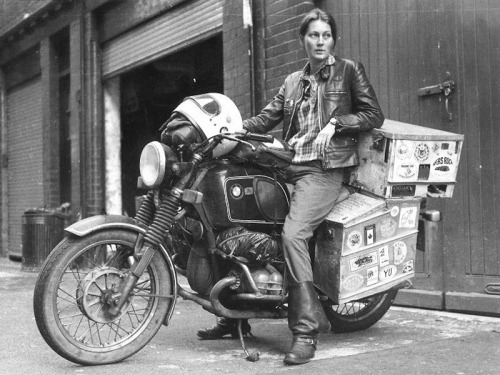Last fall I started researching, in my haphazard way, so-called difficult women — or, if you prefer “difficult” women — for my new book, tentatively called In Praise of Difficult Women, though that may change, since as someone whose opinion I respect pointed out, it sounds like a subtitle (and indeed was a subtitle — of the difficult Elizabeth Wurtzel’s 1998 book, Bitch, which is purportedly a history of female manipulation — but that is not what I’m talking about at all.)
The plan for my new book, publishing in May 2017, is to consider all the ways women can be so-called difficult/”difficult” through the lens of the lives of thirteen 20th century female icons, and in the process do my bit to rehabilitate the word. Someone (Angelina Jolie?) said “I am not a difficult woman, I am a strong woman who knows her worth.” No, doll, you’re difficult. Live it, love it, own it.
The idea arose when I was writing my kick ass women series and I would come upon a woman I loved for her crazy courage, her outlandish behavior, her firm and bad decisions, her off-the-rails esprit, her complete disregard of the conventions of the day, who nevertheless failed to meet my peculiar criteria for inclusion in the series (such a select group, there were only four: Katharine Hepburn, Coco Chanel, Georgia O’Keeffe, and Julia Child), and so I would have to set her aside.
There were many women under consideration and boy howdy were they difficult. To a one: disobedient, insistent, stubborn, opinionated, self-destructive, occasionally felonious, and insistent on being who they were regardless of what anyone thought. Well-behaved women rarely make history as the old saying goes and these ladies were living proof. With these women, it was pretty much all my way or the highway, all the time. They were decisive. They dared to dream. They hurled themselves straight at their own passions. Some of them changed the world.
I thought: What if there were a book of these women? A sampling of all the ways they insisted on being themselves in the face of convention, expectation, and obligation? Most of these women came of age in the early to mid-20th century, when women were expected to want one thing in life, to be a wife and mother. When the only acceptable careers were teacher and nurse (and even those were laced with tragedy, because it meant you’d married a man would couldn’t support you, and thus you were forced to work). When women were expected to pay the bills, but have no understanding of how check books or credit actually worked (my mother, god rest her soul). When they were expected to cast their vote in a presidential election according to the instruction of their husbands. When they had no say over their bodies. When any women who enjoyed sex was deemed a slut.
The strange thing about researching and writing this book is that you would think times had changed. Some of these women were born a hundred years ago. You would think this was a history project, like something Ken Burns would make a documentary about.
Nothing could be further from the truth.
The issues that plagued women who came of age in the 1940s and 50s, and even earlier, have not been resolved. The pendulum swung over for about three weeks in 1978, right around the release of Paul Mazursky’s revolutionary “An Unmarried Woman,” (where Jill Clayburgh, whose husband has left her for a younger woman, doesn’t take up with the next man she meets, even though he’s Alan Bates at his most attractive, but instead opts for “freedom”), then it began its journey back to the darkish ages. Which is where we find ourselves right this minute.
Right this minute there are women, young and old, whose main mission is to find a way of being in the world that does not offend. Women who are afraid — still, and with good reason — to speak their mind at work. Women who are afraid to look pretty and feminine in a culturally approved way for fear of being harassed and even assaulted, while at the same time desperate to look pretty and feminine in a culturally approved way. Women who’ve been made to believe that being smokin’ hot is the only true female virtue in the modern age. It’s 1956, only with Brazilian bikini waxes.
Over the coming months I’m going to be mulling and musing and questioning, in the spirit of the redoubtable Joan Didion (one of my favorite writers; is she difficult?) who said “I write entirely to find out what I’m thinking, what I’m looking at, what I see and what it means.”
As I cogitate on what it means to be “difficult” — by which I mean fully human, fully awake, fully in possession of a personality that deserves to be embodied, embraced, and expressed — I hope you’ll follow along, share your thoughts and experiences and join my inquiry.










Um. Count me in.
Karen,
As a journalist, I was called “difficult” by my bosses because I fought to continue to report on news that advertisers found unflattering, including the poisoning of local waterways by Kennecott Copper and the execution of bald eagles by PGE’s lines. As a talk show host, I was difficult because I talked about the absurdity of going to war with Iraq. As an author, I’m labeled difficult because I’m exposing America’s over- reliance on pharmaceutical medicine as the huge fraud it is. Difficult or speaking truth to power? Thanks for this brilliant post.
Sheila
love your article .. xxx